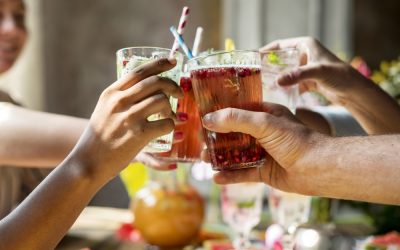The bleeding risk from alcohol increases with can alcoholism cause blood clots moderate alcohol use and becomes especially serious with heavy or binge drinking. If you’re also on other medications like NSAIDs (e.g., ibuprofen), the risk goes even higher. Aspirin is a common antiplatelet drug that can cause stomach bleeding when taken with alcohol. This combination can irritate the stomach lining, leading to ulcers or significant gastrointestinal bleeding. Following safe drinking practices and consulting with a healthcare provider is crucial. Blood thinners are medications that slow your body’s ability to coagulate blood, making your blood less likely to form blood clots.
Can you drink on a blood thinner? The answer might surprise you.
Alcohol can enhance the effects of blood thinners, potentially causing dangerously thin blood and increasing the likelihood of bleeding. It may also interfere with the metabolism of these medications, leading to fluctuations in their effectiveness. Researchers recently looked closely at two drugs, Eliquis & Xarelto, which are used to dissolve blood clots in a condition called acute venous thromboembolism (VTE). They found that both drugs work well, but Eliquis might be a bit safer. People taking Xarelto had more bleeding issues, both major and minor ones. The Annals of Internal Medicine published a study that revealed that people on Xarelto not only bled more but also had more clots and strokes.
What is Produced When Beer is Made: Understanding the Brewing Process and Its Byproducts
- If you’re taking warfarin, you don’t have to give up foods higher in vitamin K completely.
- Even with these guidelines, how much alcohol you can safely consume depends on personal risk factors—such as high blood pressure, liver function, or a history of bleeding.
- Common categories include Vitamin K antagonists (e.g., warfarin) and Direct Oral Anticoagulants (DOACs) like rivaroxaban, apixaban, dabigatran, and edoxaban.
- For example, people with liver problems may need to limit their alcohol use more strictly.
But limiting them in your diet and being consistent in the portions you do eat is important. Changing up how much vitamin K you’re getting each day can prevent warfarin from doing its job. Doing anything that can make you bleed is something to seriously consider not doing if you’re on a blood thinner. That means contact sports like hockey, soccer or football, or ones that pose a serious risk of injury Alcoholics Anonymous if you fall (like skiing, gymnastics or ice skating) are best put on the sidelines.
Blood Thinners and Alcohol: Effects, Risks & Interactions
Mixing alcohol with blood thinners can increase the risk of bleeding and should be avoided in most cases. You may be safe to drink alcohol on occasion while on blood thinners and if your doctor gives you the go-ahead. Technically, it depends—but the increased risk of https://investmentstrategies.com.mx/2022/04/11/dry-drunk-syndrome-what-it-is-symptoms-and/ bleeding and dangerous interactions means caution is critical. Always consult your doctor, avoid binge drinking, and be mindful of how alcohol affects your treatment. Alcohol consumption while on blood thinners should always be discussed with a healthcare provider.
Xarelto and Alcohol Liver
According to studies, alcohol may have anticoagulant properties in small doses that function almost like blood thinners. It has been shown that fibrinogen, another protein crucial for blood clotting, decreases concentration when alcohol, or ethanol, is consumed. Therefore, combining Xarelto alcohol may cause your blood to have a stronger anticoagulant effect. The answer might depend on your doctor’s recommendations, but, in short, you should limit your consumption and never binge drink.
The Effectiveness of Outpatient Rehab: What You Need to Know

Another research piece in JAMA focusing on older adults showed similar findings; those who took Xarelto experienced more clotting and bleeding compared to those on Eliquis. Remember, recovery is a journey, and at JourneyPure, we are dedicated to walking alongside you every step of the way. If you or a loved one is struggling with addiction and medication management, we are here to help.

Ready to Break Free From Addiction?
So when considering drinking alcohol while on blood thinners, taking specific steps under medical supervision can contribute to a safer and more controlled approach. For individuals taking warfarin, an international normalized ratio (INR) test measures the blood’s clotting time. Combining alcohol with blood thinners poses certain risks that individuals should be aware of, as it can have implications for both health and medication effectiveness. To summarize, if you are on blood thinners, it is best to avoid consuming alcohol.
- Blood thinners are broadly categorized into anticoagulants and antiplatelets.
- This is doubly dangerous, as you are more likely to have an injury while intoxicated and are at higher risk for severe bleeding.
- Drinking alcohol while taking Eliquis is not recommended as it can increase the risk of bleeding.
- Each client receives a customized treatment plan for their unique needs in dealing with alcoholism and drug addiction.
Explore effective methods to manage atrial fibrillation (AFib) post-ablation procedure. Having discussed how to manage alcohol misuse, let’s examine the possible interactions between Eliquis and other medications. Chronic alcohol consumption is known to irritate and erode the gastric mucosa, which can lead to the development of gastric ulcers. These ulcers are painful sores that form on the lining of the stomach and can cause significant discomfort.
